Seabird Monitoring, St Kilda
There is no place like St Kilda and Noble Caledonia have been visiting the island on small expedition ships for over 30 years. Towering out of the storm-tossed waters of the Atlantic Ocean, its cliffs and sea stacks clamour with the cries of hundreds of thousands of seabirds. Internationally recognised for its birdlife, St Kilda is no less famous for its human history. A community existed here for at least 4,000 years, exploiting the dense colonies of gannets, fulmars and puffins for food, feathers and oil. Now uninhabited work is required to monitor, maintain and make-good damage caused by time and climate change and such activity is made more complex, costly and challenging by the World Heritage Status of the island, remoteness, by weather and by accommodation. St Kilda was a challenging place to live, it remains a challenging place to care for and to visit. Critical to ongoing protection of the island’s heritage and safe access for visitors, volunteers and staff are vital conservation and development activities, only possible with the support of the public. The Noble Caledonia Charitable Trust continue to work with the National Trust for Scotland and their projects on St Kilda.
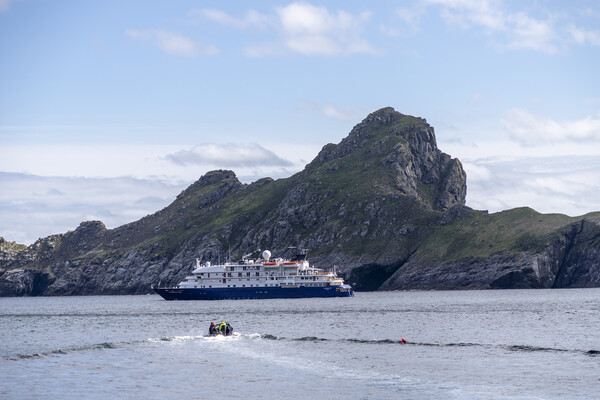
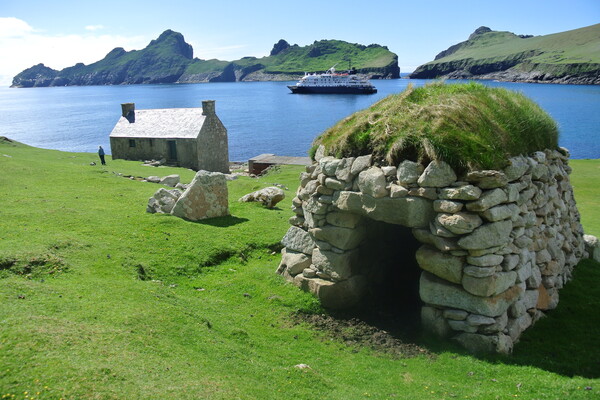
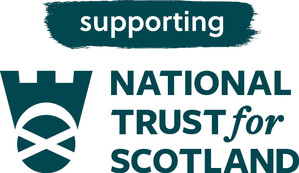
For over 90 years, the National Trust for Scotland has endeavoured to protect and promote Scotland’s natural, cultural and built heritage for present and future generations to enjoy. As we journey towards our charity’s centenary, we are focused on our mission - to ensure Scotland’s nature, beauty and heritage, is protected, engaging and accessible for everyone to experience and enjoy. We could not do this without those who support us so generously in our mission. The support we have received from the Noble Caledonia Charitable Trust and from Noble Caledonia staff and passengers is greatly appreciated, and we are very pleased to discuss with Noble Caledonia Charitable Trust opportunities to continue to support our charity in our mission to care for the incredible St Kilda.
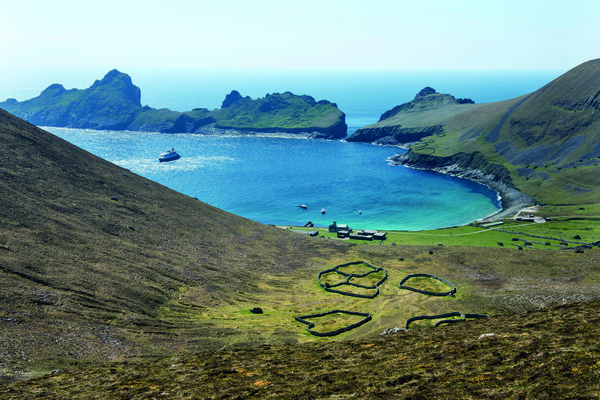
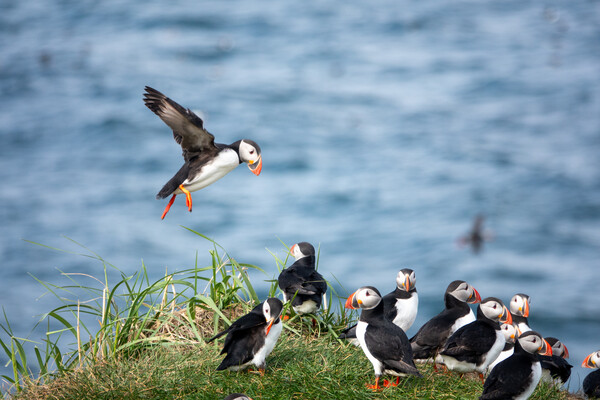
St Kilda’s unique and fragile ecosystem is home to nearly one million seabirds, including significant populations of fulmars and petrels, the UK’s largest colony of Atlantic puffins, and the largest colony of northern gannets in the world. However, our seabirds are under unprecedented threats from the spread of Avian flu to decreasing food stocks from overfishing or breeding grounds disappearing to human development. Biosecurity together with seabird surveys and monitoring is crucial to safeguarding this breeding site for the survival of vulnerable populations, and for increasing our knowledge of seabirds and how we can help protect them.
Biosecurity on St Kilda is critically important for seabirds because the archipelago is one of the most significant seabird breeding sites in Europe—and even globally. The National Trust for Scotland charity works hard to ensure that their biosecurity interventions protect colonies from disease and from invasive species, which could devastate breeding sites, many of which are in global or regional decline. Indeed, St Kilda is the UK’s highest priority island for keeping free of invasive non-native predators. Protection from invasive species and disease involves the provision of specialist hardware such as disinfectant mats and traps, as well as human resource for implementation, monitoring and reporting. These costs are higher for St Kilda due to the remote location.
In addition to biosecurity activity, seabird monitoring on St Kilda is important for several ecological, conservation, and scientific reasons. Because seabirds respond quickly to changes in food availability and breeding conditions, they are critical bioindicators for studying climate impacts in marine environments. Indeed, seabird monitoring on St Kilda is a cornerstone of marine conservation science, offering insights that go far beyond the islands themselves. With one of the longest continuous seabird monitoring records in the world (started in the 1950s), St Kilda’s long-term dataset is invaluable for detecting trends and ecological shifts. Long-term monitoring on St Kilda reveals how global warming is affecting breeding success, migration patterns, and population dynamics - helping us to track the health and trends of globally important seabird populations.
Your support will help the National Trust for Scotland continue to implement protective biosecurity and to undertake monitoring, often on far-flung rocky outcrops, where they need to employ innovative ways to monitor the activity of seabirds through remote and unobtrusive new technology and methodology. Your contribution will directly impact their ability to protect these vulnerable and vital seabird populations.
The Noble Caledonia Charitable Trust are delighted to continue to offer support to the National Trust for Scotland conservation efforts in St Kilda. Below is a short thank you film from National Trust for Scotland ambassador Cal Major.
How to Donate: If you would like to make a donation you can donate online here.
Alternatively if you would prefer to make a donation by cheque please make it payable to ‘NCCT’ and send it to NCCT, 2 Chester Close, London, SW1X 7BE. If you are eligible for gift aid you can increase your donation by 25% at no extra cost to you by using our Gift Aid Form.





